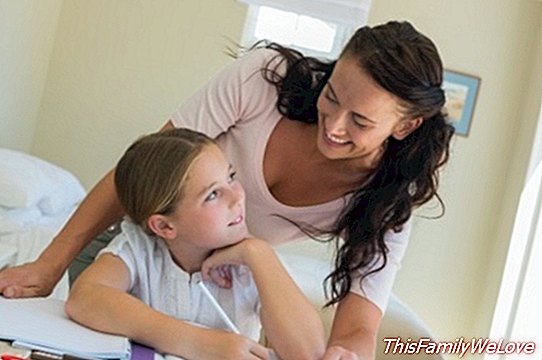Children's self-esteem, techniques to enhance it

People with good self-esteem show positive feelings and attitudes towards themselves and towards others. It is easier for them to be smiling, welcoming, optimistic people, as well as capable of carrying out illusions and projects. A person with self-esteem is sure of herself, but do not overwhelm her and, normally, others would like to resemble her.
But it is not about deceiving oneself about one's worth: one thing is self-esteem and another is pride, believing oneself more and better than others. Self-esteem is built through a process of assimilation and internalization from birth, but it can be modified throughout life. It is generated by the image that others give us of ourselves and by the value we give to this image. During childhood and adolescence, self-esteem creates a deep mark in us, because it is when we are most vulnerable and flexible.
As Alfonso Aguiló says, in his book Educate the feelings, published by Editorial Palabra, "high self-esteem leads one to think only of oneself, to value oneself more than one is worth, to be selfish and self-important, et., obviously that would be bad." In this sense, one could say that both low self-esteem and excessively high self are destructive to the personality and psychologically insane. "
How to stimulate children's self-esteem?
Each child is unique, so to build a good self-esteem in your child you must consider factors such as their temperament, their abilities, weaknesses, defense mechanisms, desires and their cognitive level. In addition, we give you other practical ideas:
1. Encourages the development of the child's responsibilities. In a positive way, it creates some commitments and demands, in a climate of participation and interaction, its fulfillment on its part.
Ask for their participation, giving the child the opportunity to make decisions and solve a problem.
Reinforces with a positive sense the good behaviors of the child. For example, when you do your homework, or pick up your toys, or change your clothes on your own, tell them warmly and effusively: "How old you are! Thank you for helping me! You did it very well!"
2. Mark the limits, teaching them to foresee the consequences of their behavior. Example: "If you do not pick up your toys, you will not go to the garden". And that there is no turning back.
3. Teach your child to solve their own problems and learn from their mistakes in a positive way For example, if the child does not achieve a good grade in a subject, encourage him or her to study more and prepare to excel in the next exam. The child must feel that a mistake can become a learning and, consequently, can fix it if it puts more effort.
4. Put aside destructive criticism, since negative words do not favor the child's self-esteem. Instead of saying: "You are a messy, you have your room made a mess", better to say "I do not like to see your room so messy, it makes me very sad, it is not your own". Thus, you will be showing that what you dislike is the disorder of the room, not the child.
5. Give your child a special time to enjoy together, not to give lessons or to review their behavior of the last days. It's about going to a place you like and spending time together, talking about the things he wants. The personal and frequent treatment is a generator of confidence.
Teach how to convert complaints and criticisms into suggestions and requests. Children "complainers" often have a negative image of themselves and are very self-critical. If they learn to ask and suggest, they will reduce inner tension.
6. Listen to him without judging him continuously. Listen with the heart, with sincere interest, without being advising or commenting on what is said continuously. Avoid interrogations.
7. Discover excellence. Lean on the strong points. Discover and inform about the special qualities: "¡Pintas genial!". Lean on your strengths -the desire to please us, your willingness to collaborate, etc.- to get you to improve in some concrete aspect.
8. Reward more than punish. Sometimes, it is necessary to punish the children for transgressing certain rules or rules. But also, in justice, we should recognize their good performances, which are always more numerous. It is not about rewarding something material, which would distort the achievements of good behavior, but to thank and recognize what is well done.
9. Provision required. To what he knows and can do. So, with effort, and sometimes with help, you can perform well. Do not ask for complicated tasks or responsibilities without explaining well what to do and what is expected of him / her.
Marisol New
Advice: Alfonso Aguiló, author of the book Educate the feelings, from Editorial Palabra.
Click here and get the first chapter as a sample of the book.




